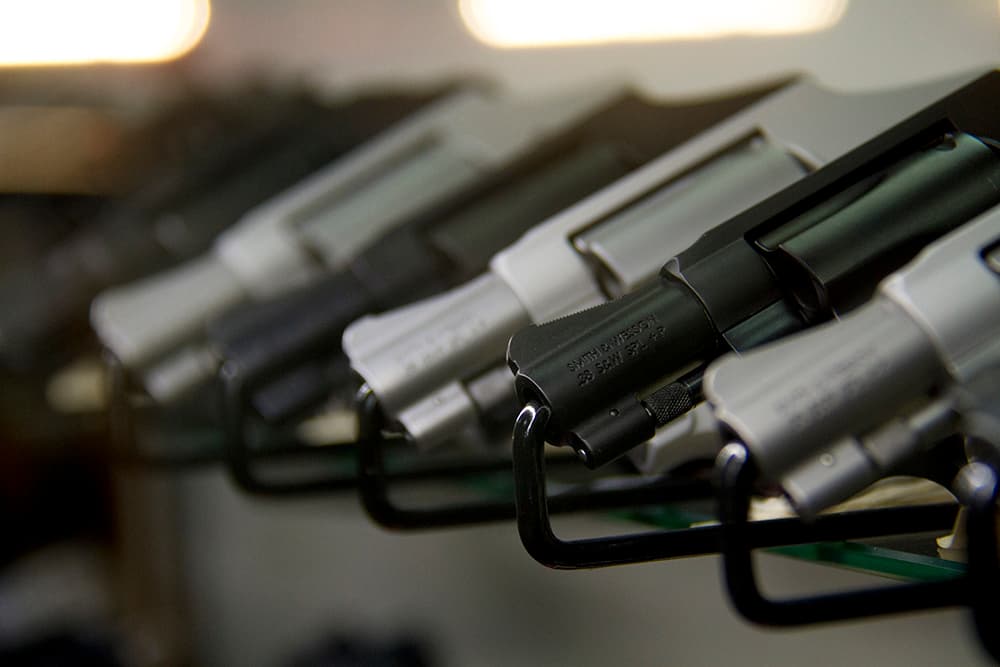
The Denver City Council moved on Tuesday toward one of the first city-level bans on "bump stocks," the devices that can make a rifle fire at nearly automatic speeds.
Support for the ban appeared strong at Tuesday's council meeting, while another issue drew more debate: The proposed law also includes a tougher local limit on how many rounds a gun magazine can have. The way that the magazine ban works drew some opposition from gun rights advocates and one council member.
Still, it appeared that the proposal was headed for approval next week.
The magazine issue:
State law already makes it generally illegal to have a magazine that can hold more than 15 rounds in Colorado. The Denver proposal goes a step further: It doesn't allow gun owners to "grandfather in" higher-capacity magazines that they already own.
The ban would make people "instant criminals," according to Keith Emerson, a speaker at a public hearing on Tuesday.
Councilman Kevin Flynn agreed. "What concerns me is the retroactivity, the impact on possibly thousands of law-abiding gun owners in Denver," he said, noting that some pistols come standard with 17-round magazines. (He still supports the bump-stock ban, he said.)
Under the current state law, anyone who possessed a large-capacity magazine before July 1, 2013, is allowed to keep it. But since the Denver bill has no grandfather clause, those people would now be breaking the proposed city law.
Councilman Rafael Espinoza, who introduced the bill, said that was intentional. It's difficult to enforce the existing state ban because it's hard to verify whether a person really qualifies for the grandfather clause, Espinoza said.
"It comes down to the policing of the magazine. There’s no really clear way to tell whether that’s a legally occurring magazine that predates the ordinance or one that was purchased out of state," he said in an interview. "Therefore, let’s make it easy."
Alana Smart, of Colorado Faith Communities, said there's a practical reason to ban larger magazines.
"The more times a shooter has to reload, the better it is for the rest of us," she told the council. "We can no longer count on federal law to protect us," she added, saying the impetus falls to state and local governments.
In at least one case, a shooter's need to change magazines mattered: A 61-year-old woman reportedly took a fresh magazine from the man who shot Gabby Giffords as he tried to reload, allowing others to subdue him.
However, sellers also have found other ways around Colorado's magazine ban, including selling magazines that can easily be converted to higher capacities.
Denver's proposed law would set the punishment as a fine of $100 to $999 and jail time of 10 to 180 days.
On bump stocks:
There was very little debate on the bump-stock ban itself. Police have only occasionally encountered the devices here, Espinoza said. When they have, they have had to return them.
But the ban, he said, could help police do more to stop someone from using a bump stock in an attack.
"We should never, ever accept mass shootings anywhere in this country," said Councilwoman At Large Debbie Ortega.
Alan Kennedy-Shaffer, a candidate for state senate, originally introduced the idea in Denver. It's now gaining traction in the state legislature, too.












